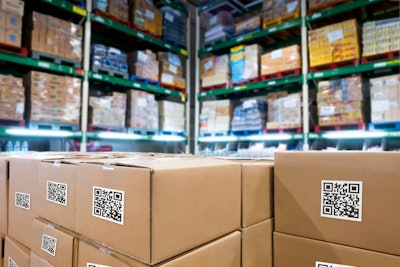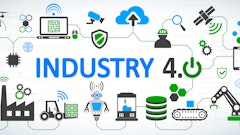
The digital revolution is upon us and with it comes the arrival of Industry 4.0 - the new wave of digital transformation ready sweep across the modern supply chain. From the very latest in technology to whole new ways of thinking, it’s certainly set to shake up the dynamic of manufacturing, but just how beneficial is it likely to be in the long-run?
What is Industry 4.0?
Being something of a buzzword for the last couple of years, most people are now fairly familiar with the idea of Industry 4.0, but if you’re still not fully clued up on the term and what it entails, here’s a quick overview.
Also referred to as the ‘fourth industrial revolution’, Industry 4.0 is the further digitalization of the manufacturing sector. While Industry 3.0 introduced the likes of computers into the process, 4.0 focuses on enhancing this with disruptive new technologies and software solutions that force businesses to rethink the way they operate. From machine learning, AI and automation to big data analytics and the Internet of Things, this new wave of tech promises to shake up the industry and provide a truly connected manufacturing network.
How Can Industry 4.0 Benefit the Supply Chain?
The adoption of Industry 4.0 looks set to benefit many aspects of the manufacturing sector, and none more so than the supply chain. Here are just a few examples of the ways in which it could be transformed:
- Better warehouse management
The warehouses of this new era have the potential to be fully autonomous; a smart, interconnected environment with vastly improved efficiency. Warehouse inventory tracking software will constantly update in real-time, with embedded sensors to indicate exactly when and where stock has been deposited and picked up. When delivery trucks alert the warehouse of their position and estimated arrival time, intelligent management systems will even be able to choose a docking spot for the item, and arrange for autonomous equipment to move it to a chosen location. This is the reality of a smart warehouse - streamlined and much less labour-intensive than the ones of today.
Smart warehouse technology is already being trialled by some businesses. DHL tested augmented reality in one of its Netherlands warehouses to great success - it utilised ‘vision picking’, in which staff wore smart glasses and were guided through the warehouse via graphics. This helped to reduce errors and sped up the picking process by 25%.
- Reduction in forecasting errors
Predictive analytics will be one of the major capabilities of Industry 4.0. More than just reporting what the current state of the supply chain is, advanced algorithms will be able to accurately predict demand volume for certain items, as well as highlight potential risks and identify trends further down the chain. This will help businesses to plan accordingly, optimise their inventories and reduce the likelihood of forecasting errors. It’s all about encouraging more informed and proactive decision making by managers, which will, in turn, result in reduced costs.
- Greater visibility
One of the most common issues faced by the supply chain today is a lack of shared information. In the world of production, disruptions can be highly likely, but with so many different parties involved in the supply chain, it’s easy to lose sight of where things go wrong, or fail to receive information in a timely manner. Going digital helps to break down communication barriers and offer greater transparency, removing the outdated linear nature of the chain and allowing everyone to see the whole network.
It also makes for easier traceability, with real-time tracking and status updates similar to what we see in the B2C market now. This transparency goes a long way towards building stronger relationships with customers and suppliers alike.
Transforming the Supply Chain of the Future
While the revolution is still very much in its infancy, there’s no doubt that the potential that comes with this new era of supply chain management is tremendous. Fast and flexible, the digital supply chain is one that’s set to be much more customer-focused, and in turn boost revenue via whole new avenues. As more and more businesses begin to adopt Industry 4.0 models and technologies, they’ll be able to establish supply chains that are more sustainable and efficient than ever before - and those that don’t adapt with the times are likely to be left behind.


















